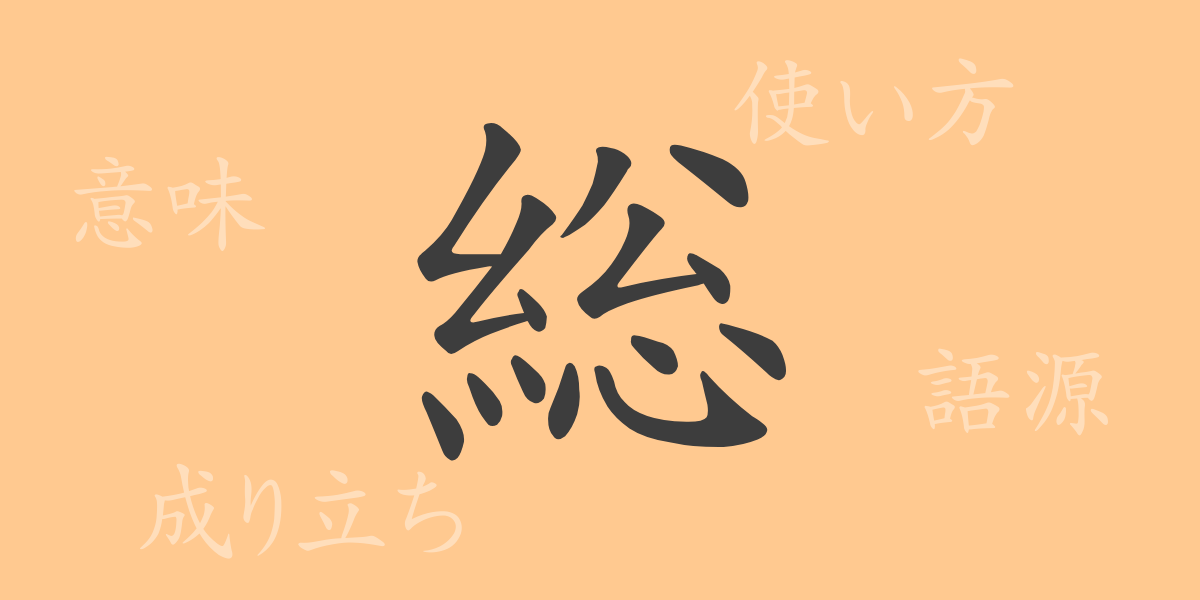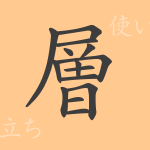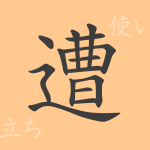The beauty of the Japanese written language is embodied in its Kanji, each character brimming with rich meanings and history. This article focuses on the Kanji ‘総’ (そう, sō), exploring its origins, meanings, applications, and phrases incorporating it. We aim to deepen readers’ understanding of ‘総’ and enhance their appreciation of the Japanese language.
Origins of 総 (そう – Sō)
The Kanji ‘総’ originated in ancient China, used to depict the act of bundling threads together. This imagery evolved to symbolize concepts of gathering and integration, leading to meanings like ‘total’ and ‘general’. In Japan, ‘総’ appears in ancient texts and has been widely adopted in various contexts.
Meaning and Usage of 総 (そう – Sō)
‘総’ conveys meanings related to ‘totality’ and ‘unity’, such as ‘whole’, ‘all’, or ‘to gather into one’. It appears in expressions like ‘総て’ (altogether) and ‘総じて’ (on the whole), typically used to discuss comprehensive views or summaries. Common applications include ‘総額’ (total amount), ‘総理大臣’ (Prime Minister), and ‘総合的’ (integrated), indicating overall control or summarization.
Readings, Stroke Count, and Radical of 総 (そう – Sō)
The Kanji ‘総’ reflects significant information about its shape and usage.
- Readings: On’yomi (音読み) ‘ソウ’ (Sō), no Kun’yomi (訓読み).
- Stroke Count: ‘総’ comprises 14 strokes.
- Radical: Thread (糸部 – いとへん).
Phrases and Idioms Using 総 (そう – Sō) and Their Meanings
There are numerous idioms and phrases that include ‘総’, each providing unique insights:
- ‘総理大臣’ (Prime Minister) – The head responsible for overseeing the government.
- ‘総合’ (Integration) – The act of combining multiple elements into one coherent whole.
- ‘総勢’ (Total personnel) – The total number of people in a group.
- ‘総出’ (All-out) – Full participation by all members.
- ‘総額’ (Total amount) – The sum total of a monetary amount.
These idioms and phrases are frequently used in daily life and business settings.
Conclusion on 総 (そう – Sō)
The Kanji ‘総’, with its simple yet encompassing meanings, plays a crucial role in the Japanese language. From casual conversations to official documents, ‘総’ provides precision and richness in expression, illustrating the comprehensive nature of many aspects of life and governance. Through this article, we hope you have gained a deeper understanding of ‘総’ and enriched your knowledge of Japanese linguistic culture.

























